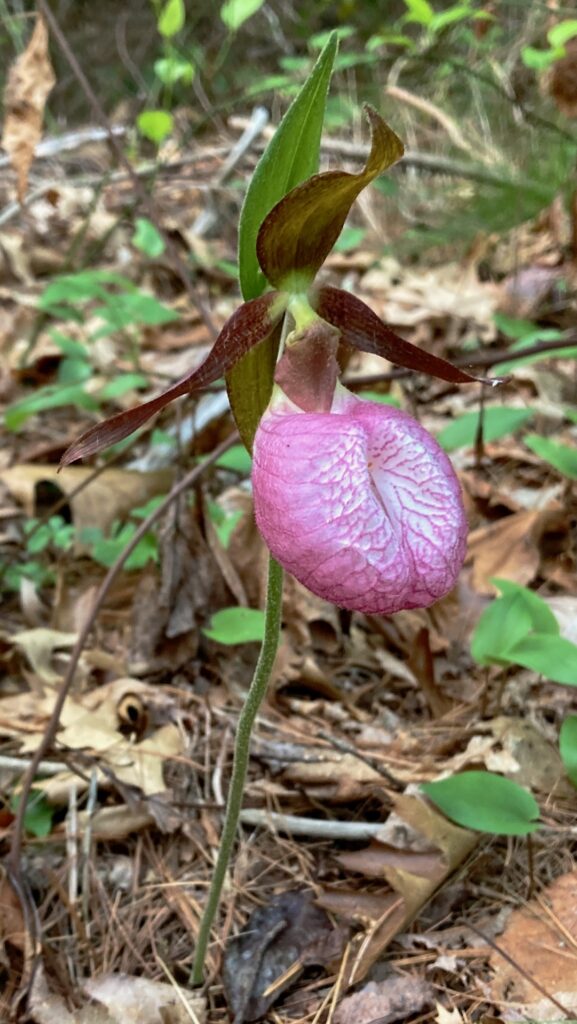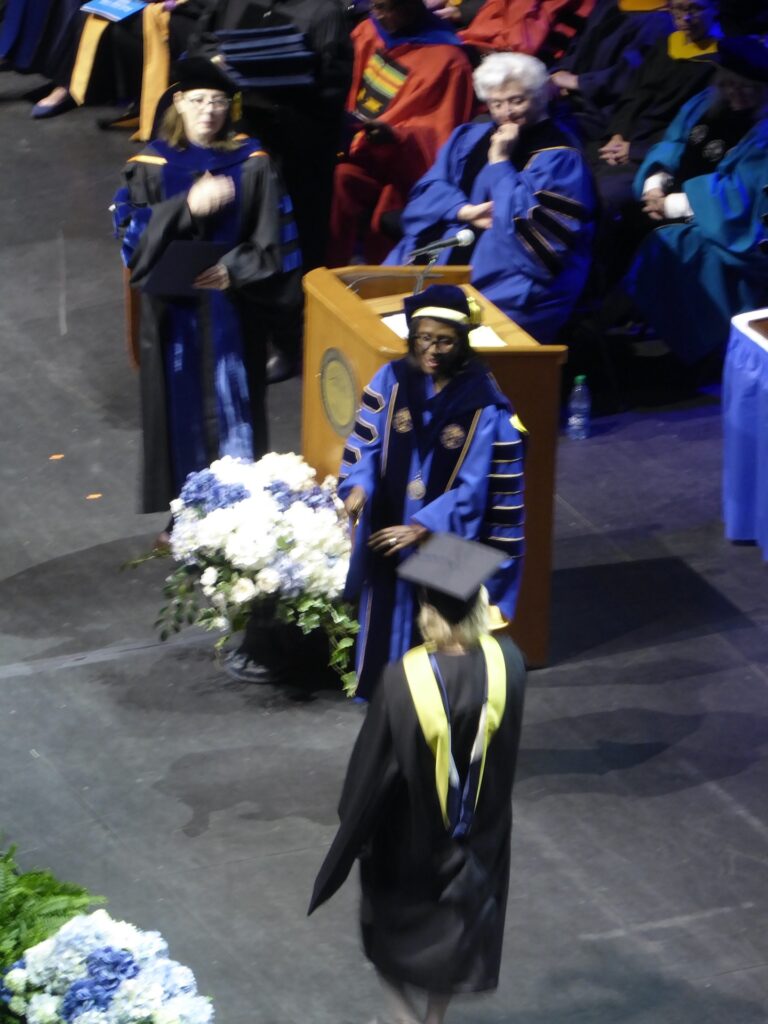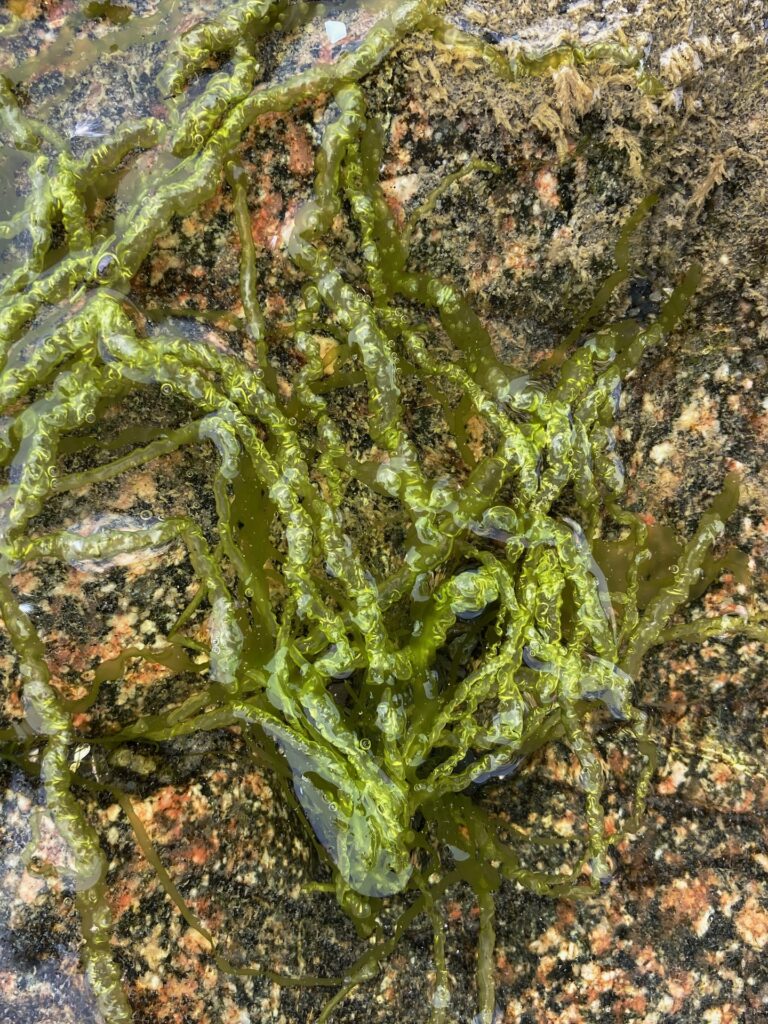The spring/summer issue of the Harvard Divinity School Bulletin features a number of essays on ecological spiritualities. I turned first to the essay by Vanessa Chakour titled “Rethinking Weeds.” As someone deeply interested in urban and suburban ecology, I was curious to see how someone might reassess the presence of weeds.
Unfortunately, the article starts off badly. In the very first paragraph, Chakour writes:
“With the combined increases of deforestation for agricultural purposes, suburban sprawl, and mass consumption of unsustainable food sources, the presence of invasive species and so-called weeds simultaneously increases. However, negative perceptions of these plants and the ‘war on invasive species’ contribute to greater ecological damage and exacerbate an adversarial relationship with the living earth by ignoring the needs of a diverse, functioning, and abundant ecosystem.”
Well… no.
Chakour claims that the “war on invasive species” (not a phrase I’ve heard widely used by field biologists and land managers) somehow contributes to “greater ecological damage.” In my experience, this simply isn’t true. As an example, consider the invasive species Yellow Star-thistle (Centaurea solstitialis). In Edgewood Natural Preserve, San Mateo County, California, Yellow Star-thistle began to dominate several grassland areas in the preserve, crowding out endangered endemic species. Biologists and land managers developed a control protocol that involves mowing at specified times of the year, then hand-pulling remaining plants to keep them from re-seeding. The end result has been to greatly reduce the numbers of Yellow Star-thistle and to help repair a highly damaged ecosystem, leading to a rebound not just in endangered native plant species but also native insect pollinator species. If Chakour considers this to be part of the “war on invasive species,” then far from contributing to “greater ecological damage” it has led to repair and regeneration of a unique grassland ecosystem. I know some of the people who have worked for years to control invasive Yellow Star-thistle at Edgewood Preserve, and for Chakour to claim that these people “contribute to greater ecological damage and exacerbate an adversarial relationship with the living earth by ignoring the needs of a diverse, functioning, and abundant ecosystem” is both ignorant and insensitive.
Part of the problem is that Chakour does not adequately define what she means by “invasive species,” “introduced species,” or “weed.” Ecological scientists might define an invasive species as an introduced (non-native) species that seriously upsets the balance of an existing ecosystem, i.e., that is ecologically destructive on a wide scale. Chakour and I both live in Massachusetts. In our state, we have about 2,200 plant species, of which about 725 are introduced species; of the latter, just “72 … have been scientifically categorized by the Massachusetts Invasive Plant Advisory Group (MIPAG) as ‘Invasive,’ ‘Likely Invasive,’ or ‘Potentially Invasive’,” according to Mass Audubon; only 36 species, or 5% of introduced species, are actually invasive in Massachusetts. Of the ten taxa of plant Chakour discusses in her essay, only one species is invasive here. The other 9 taxa she discusses include both native and introduced species that may or may not be classed as weeds, depending on who you talk to.
Chakour would have done better to discuss what we mean by “weeds.” We could define “weed” quite simply as a plant that a human being does not want growing where it happens to grow. To the homeowner who has been sold on the idea of a perfect green lawn, Dandelions (Taraxacum officianale) are weeds (T. officianale is not considered an invasive species here in Massachusetts). And yes, there are homeowners, golf course groundskeepers, and city parks departments who use toxic chemicals to get rid of weeds like Dandelions. Once you realize Chakour is actually writing about weeds, not invasive species — and if you remember that she’s writing about ecological spirituality, not science — then her essay makes sense.
Considered in that light, Chakour’s essay boils down to two main ideas. First, the word “weed” represents one human’s judgement, and thus may not be an accurate evaluation of a plant’s value to the wider ecosystem. Second, Chakour makes the interesting point that plants can be resources for physical and spiritual healing. Here she’s speaking as an herbalist, with what appears to be a deep knowledge of herbalism. Herbalism may be considered as a kind of ecological spiritual practice that heals both the body and the soul. So Chakour is arguing that if more people could know the health physical and spiritual benefits of some of the plants perceived as “weeds,” humans would be less likely to use toxic chemicals to get rid of those “weeds.”
It’s worth reading “Rethinking Weeds” to learn about one talented herbalist’s ecological spirituality. However, given the errors it contains, this essay should not be cited in any pragmatic discussion of land management or invasive species. This is unfortunate, because I believe ecological spiritualities could provide pragmatic help for addressing some of the big threats to Earth’s life supporting systems — but in order to do so, ecological spiritualities need to pay attention to the work of the ecologists, field biologists, climatologists, and other scientists, along with the land managers and other people who are actually out in the field working hard trying to save our planet before it’s too late.



